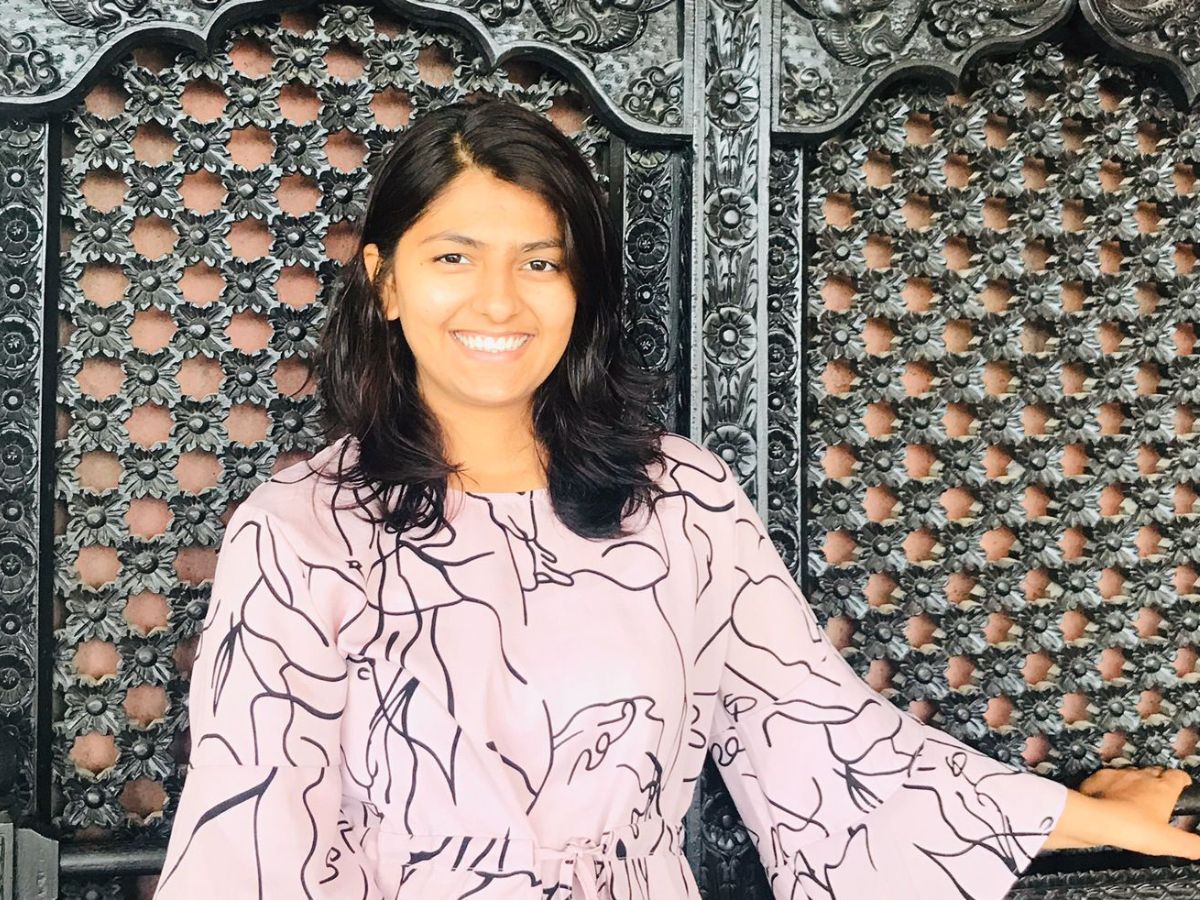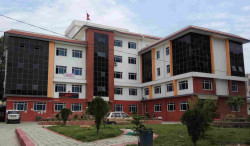Industry

Plot 1: A Bachelor's level student struggles to avail of an internship opportunity that his college course requires. Finds one through his contacts – finally. The internship goes haywire. And then the 20-year-old undergrad sets out on a mission to rewrite the rules of the game of internship.
Plot 2: Covid-19 infected his mother first and then everyone in the family. Any contact with friends, relatives and neighbours snapped off, all of a sudden with no help around to help get daily supplies. He ordered the daily necessities through e-commerce websites but then the delivery was a problem. The Google map would not locate the galli he lived in Kathmandu's interiors. "Making the Galli Maps is my business", he thought.
Plot 3: Covid-19 closed the doors for millions of Nepalis. News outlets splashed photos and stories of thousands of fellow citizens hitting the national highways as they returned home, empty-handed, and many, bare-footed. In the villages, the seasonal wild fruits just fell off the trees. Someone takes the sufferings personally and comes up with a scheme: training rural women to make Lapsi candy, thus creating some employment locally.
Sounds fictional?
It probably would, but SOMTU – a commercial bank-led social initiative – made it possible two years down the road.
In March 2022, Nabil Bank Ltd. Launched Nabil School of Social Entrepreneurship in collaboration with the School of Management at Tribhuvan University (SOMTU) under which the bank offers 40 students a 6-month fellowship annually. It is an opportunity for entrepreneurs to start off an enterprise using innovative solutions to solve long-term social issues.
“We provide the fellows with theoretical knowledge and try to inject business ideas in them,” Dr Govind Tamag, acting director at SOMTU told NepalMinute.
The social initiative has already started creating an impact, according to Tamang. "We will be able to create more impact in the days to come."
Kunal Sah, Dikshya Paudel and Raj Bikram Maharjan are amongst the 20 fellows from the first batch who are on their way to making it big in the decades ahead. Their brief stories follow:
Kunal Sah, Internsathi
1660281608.png)
The 20-year-old wanted to do an internship during his Bachelor’s degree. He came from Biratnagar and found it challenging to navigate the market of the capital city. And even though he found an internship through referrals, the experience proved to be unfruitful.
That’s when he decided that he would ensure that other interns would not have to suffer as he did.
In 2021, he set up Internsathi, a website aiming to bridge the gap between companies that look for interns and college students in search of internship opportunities. Internsathi bridges the gap and links one with the other.
“Many colleges have placement facilities but 70% of students need to find companies by themselves,” Sah told NepalMinute. “Therefore, we want to streamline, monitor and make the process easier for students, and for the companies.”
Because he is young, many underestimated him, recalls Kunal. But the social enterprise came to his advantage. “It will take me time to reach an advanced stage in my business but I will get there," he said.
Raj Bikram Maharjan, Galli Maps
1660281611.png)
When the COVID-19 lockdown hit the country, Raj Bikram Maharjan’s mother was the first one to be infected in the family. And then the entire family got stuck in quarantine. Therefore, they had to switch to buying all necessities through e-commerce websites. But that created a problem for the family.
The family lived near Swayambhu temple with the house located inside an alley. Thus, any delivery person was called at the nearest landmark, which was a 10-minute walk. The next option was to give them a google map location. But the app was not accurate.
Therefore, Maharjan decided to map all gallies and narrow alleys of Nepal and create an entirely new app called Galli Maps that would be accurate to the country.
“In South Asian countries, Google Maps is not very reliable. They have not done as much work as they have done in the US, Europe and other developed countries,” the 30-year-old told NepalMinute.
Their company Airlift Technology Pvt. Ltd. came up with high-resolution images of Kathmandu's countless number of gallies, including the alley in which they lived. "We have done zone mapping for local governments and engineering companies but they have not made full use of that high-resolution map,” he said.
Being the first venture, he struggled with legalities, decision-making and accounting. And that’s when he came across a Facebook advertisement of Nabil Bank for their fellowship program, which helped him in a lot of different areas.
“They have curated and customized the course for the needs of the Nepali entrepreneurs,” he added.
Dikshya Paudel, Kosis Enterprises

Dikshya Paudel was working at Sindhupalchowk and noticed the various problems women were facing in the district, including gender-based violence and reliance on foreign employment.
Looking for a solution, an idea struck here. She was going to create employment for the women in the community itself using the local resources.
“Sindhupalchowk is the region for Lapsi production and I saw during COVID-19 that the wild fruit was being unused there,” the 25-year-old told NepalMinute.
Therefore, she collaborated with the local government to train the women and develop Lapsi into candy. After trial production, they bought it to the market for testing and received a good response, thus, giving birth to a new venture.
“We want to empower rural women through financial independence by providing employment opportunities and promoting entrepreneurship at the local level,” she said explaining the motive of her business.
However, Paudel realized that she had jumped into the entrepreneurship field without any knowledge of the business. And when she heard about the Nabil's fellowship program, she knew she had to enrol.
“It helped a lot in paving the path to advance my entrepreneurial journey, as I understood the technicalities of the business world,” she added.






